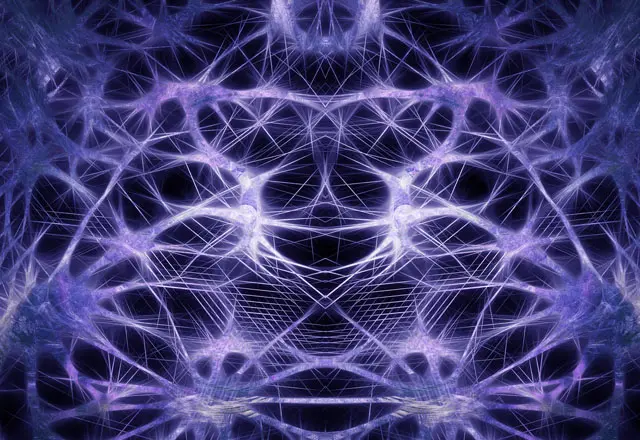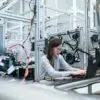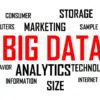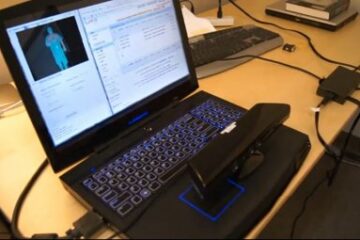The brain is understandably the most sophisticated biological structure known to science. So complex is the human brain that it often described as an abstract concept that cannot be fully understood. According to Live Science, the brain is what makes us who we are since it controls crucial functions such as thought processing, voluntary behaviors, and aspects like breathing and heart rate. In spite of all these capabilities, research shows that the human brain runs on a paltry 20 watts of energy, enough wattage to light a dim, energy-saving bulb. Neuroscientists across the world are preoccupied with understanding how the brain functions so as to get insights into the inner workings of the nervous system and explain how diseases and injuries disrupt the brain functioning.
The supercomputers already in existence today can borrow a lot from the brain when it comes to processing capabilities and efficient energy consumption. According to Scientific America, computer scientists have for decades striven to create powerful machines that can store more information and exceeding amounts of data. The development has seen the emergence of powerful supercomputers. By 2011, the “K” supercomputer from Fujitsu held 10 times more data compared to the human brain and could compute 4 times faster. However, the amount of energy sucked by the supercomputer was sufficient to power over 9,000 homes while the number of internet servers connected to the machine could fill a small town. Unlike the supercomputer, the human brain is highly efficient since it consumes inaudible amounts of energy and takes up very little space inside the head.
5 Ways The Human Brain Is Different From Computers
The field of Artificial Intelligence is doing a lot to drive parallels between the brain and the computer. The key areas of focus in AI research include memory, processing speed, data retrieval, and network. According to the American Journal of Engineering Research (AJER), the brain supersedes the computer in all the aforementioned respects.
Memory Capacity
The human memory allows us to encode, store, and recall information and experiences from present and past events. From this reservoir, we can build relationships, learn, and adapt to new ways of doing things. Information in the human brain is stored in the neurons, which number about 100 billion. These neurons interact with one another by creating some 125 trillion synapses. With this level of interconnection, the human brain can be said to possess infinite storage space.
The computer memory, along with storage capacity has also been increasing with every rising generation of computers. The computer uses primary and secondary memory to store information. The RAM and other primary memories come alive when executing programs while secondary memories such as the Hard Disk help store system information and programs. In quantifiable terms, the most powerful supercomputer as of 2014 had a Hard Disk Capacity of 20 Petra bytes and primary memory of 700 Terabytes.
Information Retrieval
Computers tapping into the resource-rich internet require Client Server or mother computer to operate effectively. Servers are stationed all across the world and help provide search results. The algorithm assisted retrieval process, however, requires information verification to ascertain their credibility. The ambiguity of the results is another key concern.
With the human brain, the retrieval process accurately focuses on obtaining relevant information from a large content reserve, which minimizes the need for manageability. Through basic information retrieval and compound information retrieval process, the brain is also capable of thinking, solving problems, creating creative nuances, and organizing information.
Multitasking Capability and Processing Speed
The computer is capable of performing many things faster than humans. The processing speed and multitasking ability make it easy for users to perform various tasks at the same time. For example, you can browse the internet and listen to music at the same time. The human brain is equally capable of achieving the same accomplishments.
The information in the brain is fired by neurons at a very high rate. The processing power of an average human brain is estimated at about 100 Million computer Instructions Per Second (MIPS). The brain’s Floating point Instruction Per Second is said to be 1,000,000 trillion, while that of a supercomputer is 20 Petaflops or 1,000 Trillion Floating Point Instructions per second.
Network Structure
With 125 trillion neuron interconnections taking place in the human brain, every cubic millimeter of brain tissue sees some 100 million synaptic connections. The connections typically happen within seconds, minutes, and hours. As for the computers, the network connections often take too much time and resources, be they Mesh, Bus, or Ring topologies. The expensive network infrastructure is supported by hubs, routers, satellites, cabling connections, and workstations among other devices.
Energy Consumption
A powerful supercomputer such as the TITAN, with all its 8,000 plus CPUs, hard drive network, cabling, and transistors requires about 8.5 MW of energy to operate effectively. The energy is sufficient to power thousands of homes. The cost of maintaining such a computer also runs into billions of dollars. Compared to the more powerful human brain, we only need to consume about 1,800 calories a day to keep the brain in good shape.
Conclusion
The human brain serves as a general-purpose machine unlike the computer, which is specifically trained for computation. There are numerous ongoing studies trying to decipher the brain. With what we now know, the brain is still superior to the computer in terms of network structure, information retrieval, energy consumption, and memory capacity.
This is a guest contribution by Saleh Stevens, a respected entrepreneur, tech expert and the CEO of Continental Clinical, a health care and research concern dedicated to serving underserved communities. During his spare time, Saleh Stevens blogs about trends in the financial sector, cutting edge technology and medical science at Salehstevens.com.














